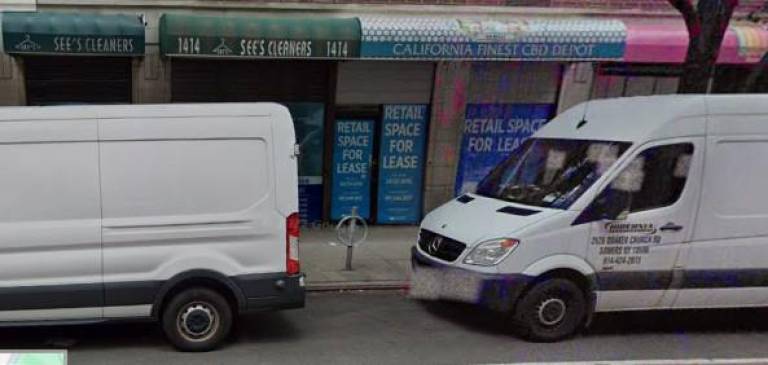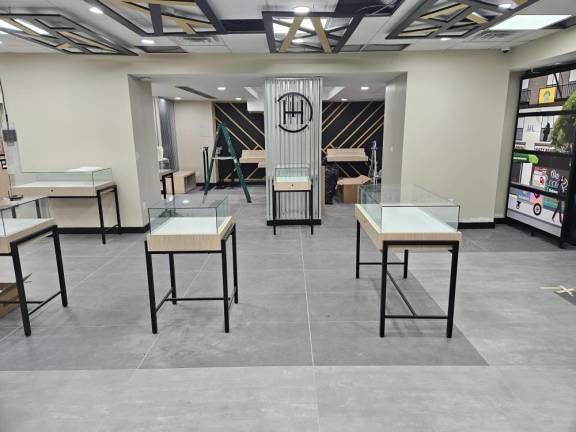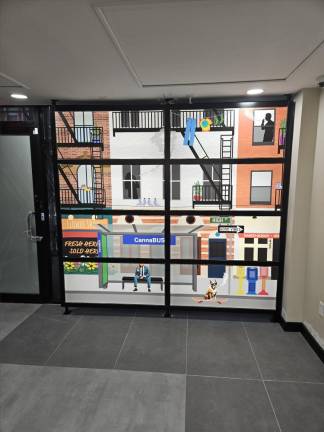It’s happening: the Upper East Side’s first legal recreational cannabis dispensary will open its doors on Jan. 4.
The Herbal Care, located at 1412 Lexington Ave. near 92nd Street, is going to be the first legal dispensary for recreational marijuana in the neighborhood, and the only one between 16th Street and Harlem in New York City so far. A few doors down, an illegal weed shop, California Finest CBD Depot at 1416 Lexington Ave. has been “permanently closed” according to Google Street maps.
“We want to be a community shop. We don’t want to be a tourist destination,” said Markel Bababekov, 34, who owns the dispensary with his brother Abbas, in a Zoom call a week before opening. They also run Celestial Cleaners, a dry cleaning business that has been on the Upper East Side for over a decade.
For Bababekov, The Herbal Care is a dream come true. “I got a golden ticket. I feel like I hit the lottery,” he said. Getting the store to open at this time is no small feat — it’s been a rocky road for aspiring legal cannabis retailers, who have been tied up by difficulties securing funding, and a court-ordered injunction that kept most new cannabis stores from opening.
Bababekov first secured his Conditional Adult Use Dispensary (CAURD) license in April. He described the process of getting the business up and running since as “grueling.” But, he said, “it’s been so much fun too. Building this dispensary. Meeting all the vendors. Meeting with employees. Coming to the dispensary every day. I enjoy it.”
A Flushing, Queens native, Bababekov moved to California at the age of 22, where he lived until moving back to the city in September. Out in California, he had owned and operated a dry cleaning business and a construction company, but always hoped to run a cannabis dispensary of his own. Prior to obtaining his New York CAURD license, he says he applied for retail dispensary licenses in eight states, including California, Massachusetts, and New Jersey. “I have so much passion for this plant. It’s crazy,” he said.
When he got the email notification that New York had granted him a license, he was at a restaurant with his wife. “I literally yelled, ‘yes!’ I yelled so loud,” he recalled.
Compared to other states, the cannabis rollout in New York State has been agonizingly slow. It’s been over two and a half years since the legalization of recreational weed, yet there are only 40 legal retailers statewide, 14 of which are within the five boroughs. (In comparison, New Jersey has 70 licensed recreational weed retailers, according to data published by the state.) In the meantime, an unlicensed weed ecosystem has thrived, consisting of over 1,500 storefronts, according to some city officials. One attorney who represents the unlicensed shops told Straus News there may be up to 8,000 in the city.
While New York State and city council have passed several laws to try to rein in the illegal shops, it has not seemed to slow down the illicit trade. And critics say that the unlicensed smoke shops, which are open late and operate largely on cash sales, are magnets for robberies. They say the stores also stock products that can be easily resold at a discount on the street.
Meanwhile, bureaucracy and lawsuits continue to slow the rollout of legal recreational marijuana shops.
In August 2022, New York State launched the CAURD application process, granting priority to “justice involved” individuals. Applicants met the criterion if they, or an immediate family member, had been convicted for marijuana-related offenses. Bababekov says he was arrested four times throughout his teenage years in New York, for smoking and possessing marijuana. The fourth time, when he was around 17 years old, he says he was sent to Rikers Island.
Now, Bababekov said he has tested “every single product” that will be stocked in his store. He emphasized that licensed dispensaries “do it the right way” — their products are legal and safe, a guarantee that illicit smoke shops don’t provide. They will pay taxes—money that will go to the city and state. Aside from cannabis products, the store will also feature art from local artists.
“I’m able to employ over 25 people. That alone I’m so happy about. I can put a good product on the streets of New York. That, I’m ecstatic about.” Bababekov said. “I’m just doing what I love.”


